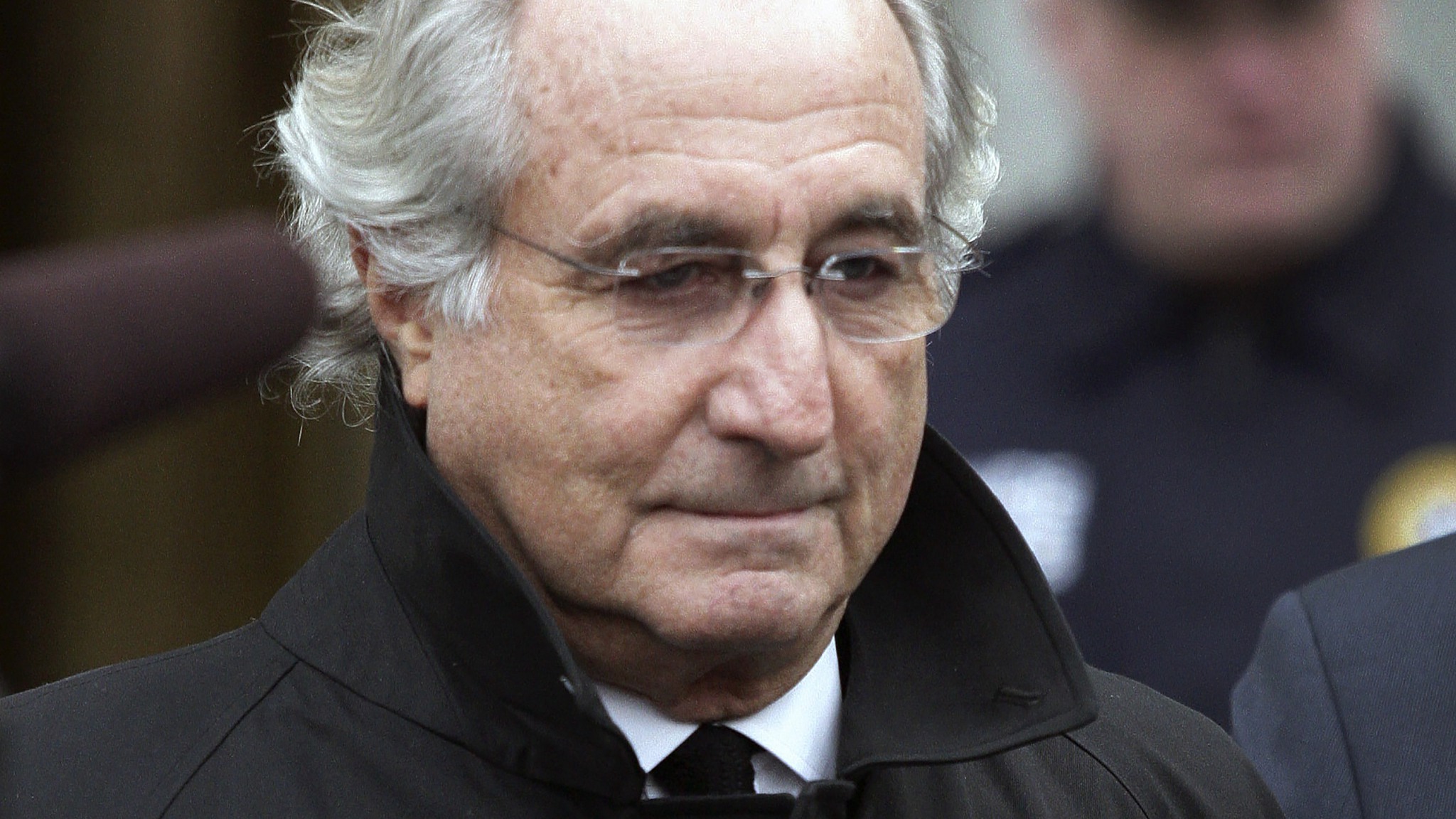Ponzi scheme architect Bernie Madoff has died at the age of 82 in a federal prison on Wednesday where he was serving a 150-year sentence. His death is believed to be from natural causes as he had suffered from terminal kidney disease and several other medical ailments.
Madoff was arrested in December 2008 for running a multi-billion-dollar Ponzi scheme – an investment fraud promising high returns, with early investors paid off with money from later ones.
The financial swindler has been serving his jail terms in a federal prison in Butner, the U.S. state of North Carolina, since July 2009, after he committed crimes including fraud, money laundering and perjury.
His fraud was estimated as high as $64.8 billion. The judge who sentenced him condemned his crimes as "extraordinarily evil."

Bernard Madoff, founder of Bernard L. Madoff Investment Securities LLC, leaves federal court in New York, U.S., January 14, 2009. /CFP
Bernard Madoff, founder of Bernard L. Madoff Investment Securities LLC, leaves federal court in New York, U.S., January 14, 2009. /CFP
In February 2020, Madoff sought a "compassionate release" from prison so he could die at home, but the same judge denied that request.
Madoff concealed his fraud through multiple recessions and the September 11, 2001, attacks, but the 2008 financial crisis proved his undoing, as investors demanded he redeem $7 billion he did not have.
His Ponzi scheme made him a poster child for Wall Street greed, shining a harsh light on both his accomplices and on regulators who seemed on the cusp of exposing him, but failed.
Madoff's thousands of victims, large and small, included individuals, charities, pension funds and hedge funds.
Among those he betrayed were the actors Kevin Bacon, Kyra Sedgwick and John Malkovich; baseball Hall of Fame pitcher Sandy Koufax; and a charity associated with director Steven Spielberg.
Many victims came from the Jewish community, where Madoff had been a major philanthropist.
"We thought he was God. We trusted everything in his hands," Nobel Peace Prize winner Elie Wiesel, whose foundation lost $15.2 million, said in 2009.
'They got me'
Madoff's fraud exposed holes at the U.S. Securities and Exchange Commission, which through incompetence or neglect botched a half-dozen examinations.
"There were several times that I met with the SEC and thought, 'They got me,'" Madoff told lawyers in a prison interview, according to ABC News.
Madoff had been the largest market-maker on the Nasdaq, once serving as its non-executive chairman.
His brokerage firm was located in a Midtown Manhattan tower known as the Lipstick Building. Employees there said they felt like part of Madoff's family. They did not know he was running his fraud on a different floor. Only a trusted few did.
Madoff said his fraud began in the early 1990s, but prosecutors and many victims believe it started earlier.
Investors were entranced by the steady, double-digit annual gains that Madoff seemed to generate, and which others found impossible to explain or duplicate.
Prosecutors said Madoff and his staff sent clients fake confirmations for trades he never executed, and fake account statements to document gains he never made.
Madoff admitted to sometimes dipping into his account at JPMorgan Chase to pay customers who wanted their money back.
The investors' money helped Madoff and his wife, Ruth, enjoy luxuries such as a Manhattan penthouse, a French villa and expensive cars and yachts, with a combined net worth of about $825 million.
But no one from Madoff's immediate family was in the Manhattan courtroom when U.S. District Judge Denny Chin sentenced him. And no family, friends or supporters submitted letters attesting to his good character or deeds in support of leniency.
Ruth Madoff was not charged. She said she felt her husband had betrayed her after nearly a half-century of marriage. Many were skeptical of her claim she knew nothing about the fraud.
Prosecutors let Ruth Madoff keep $2.5 million.
"I believed when I started this problem, this crime, that it would be something I would be able to work my way out of, but that became impossible," Madoff told the court. As hard as I tried, the deeper I dug myself into a hole."
Payback
Within days of Madoff's arrest, efforts began to recoup money for people who invested with him and for third parties that sent their money to his firm.
Irving Picard, a court-appointed trustee, has recouped more than $14.4 billion by targeting "net winners" who took more money out of Madoff's firm than they put in.
"The pain experienced by the victims of Mr. Madoff's fraud is not diminished by his death, nor is our work on behalf of his victims finished," Picard said in a statement.
Nearly $3.2 billion has been distributed from a separate U.S. government fund overseen by former SEC chairman Richard Breeden.
"This is certainly the largest single crime against individual investors in world history," Breeden said in an interview. "You can put them back in the financial position they were in, but you can't eliminate the suffering."
The pain for Madoff's family did not end with the patriarch's imprisonment.
Tormented by his father's actions and by lawsuits, Mark Madoff, the older son, hanged himself with a dog leash at age 46 on December 11, 2010, the second anniversary of his father's arrest.
Andrew Madoff died of cancer in September 2014, at age 48.
When rejecting Madoff's request for compassionate release in June 2020, Judge Chin agreed with prosecutors that prison interviews where Madoff played down his crimes showed he "never fully accepted responsibility" for them.
(With input from Reuters)

